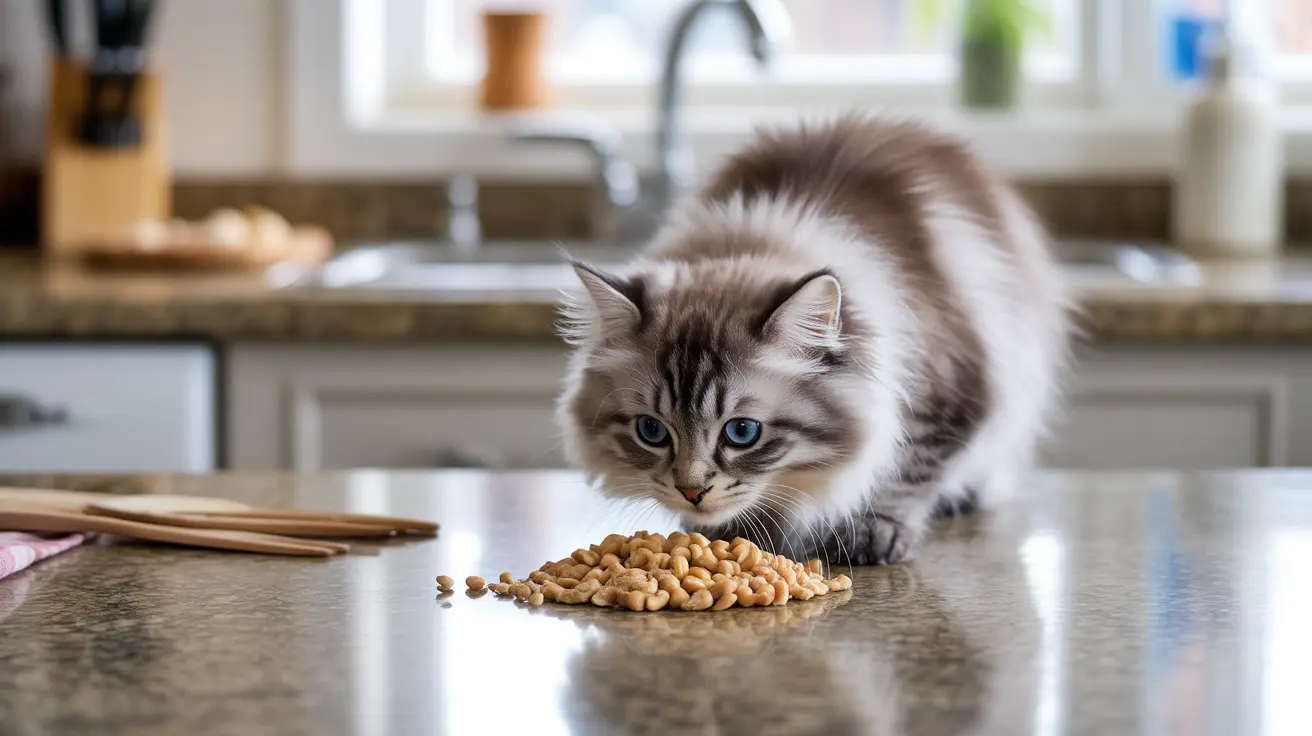Understanding Cats' Nutritional Needs
Cats are obligate carnivores, meaning their bodies are designed to derive nutrition primarily from meat sources. Their digestive systems aren't well-equipped to process plant-based proteins and fats, including those found in peanuts.
Unlike humans who can benefit from the nutrients in peanuts, cats have specific dietary requirements that are best met through animal-based proteins and fats.
Safety Considerations When Feeding Peanuts to Cats
Potential Risks
When it comes to feeding peanuts to cats, several risks need to be considered:
- Choking hazards from whole peanuts
- Digestive upset including vomiting and diarrhea
- Possible allergic reactions
- Risk of pancreatitis due to high fat content
- Potential salt toxicity from seasoned peanuts
Safe Serving Guidelines
If you decide to offer peanuts to your cat, follow these important guidelines:
- Only use plain, unsalted peanuts
- Crush or finely chop the peanuts
- Offer extremely small portions
- Monitor your cat for any adverse reactions
- Never give peanut shells or skins
Peanut Butter and Cats
While some cats might show interest in peanut butter, it's crucial to be extremely careful with this treat. Commercial peanut butter often contains additives that can be harmful to cats, including:
- Xylitol (highly toxic to pets)
- Excess salt
- Added sugars
- Preservatives
If you must offer peanut butter, use only natural, unsweetened varieties in tiny amounts.
Signs of Peanut Intolerance in Cats
Watch for these symptoms after feeding peanuts to your cat:
- Vomiting or diarrhea
- Lethargy
- Excessive scratching or skin irritation
- Difficulty breathing
- Loss of appetite
Alternative Healthy Treats for Cats
Instead of peanuts, consider these safer treat options:
- Small pieces of cooked chicken or turkey
- Tiny bits of fish
- Commercial cat treats formulated for felines
- Small amounts of plain, cooked meat
Frequently Asked Questions
Can cats eat peanuts safely, and what are the potential health risks?
Cats can technically eat plain, unsalted peanuts in very small amounts, but they're not recommended. Health risks include choking, digestive issues, potential allergic reactions, and pancreatic problems due to high fat content.
Is it okay to give my cat peanut butter, and how should I prepare it for them?
While cats can have a tiny amount of natural, unsweetened peanut butter occasionally, it's best to avoid it altogether. If you must offer it, use only pure peanut butter with no additives, and give no more than a fingertip amount.
What signs of allergic reaction should I watch for if my cat eats peanuts?
Watch for itching, swelling (especially around the face), difficulty breathing, vomiting, diarrhea, or unusual lethargy. If you notice any of these symptoms, contact your veterinarian immediately.
Why are salted, flavored, or processed peanuts harmful to cats?
These products contain additives, excess salt, and seasonings that can be toxic to cats. Salt can lead to sodium poisoning, while artificial flavors and preservatives may cause digestive issues or other health problems.
How can peanuts affect my cat's digestion and weight over time?
Regular peanut consumption can lead to weight gain due to high fat content, potentially causing obesity and related health issues. The plant-based proteins are also difficult for cats to digest, which may result in ongoing digestive problems.
Conclusion
While peanuts aren't strictly toxic to cats, they offer little nutritional benefit and come with several potential risks. It's best to stick with species-appropriate treats and a balanced cat food diet. If you're considering introducing any new food to your cat's diet, always consult with your veterinarian first.






